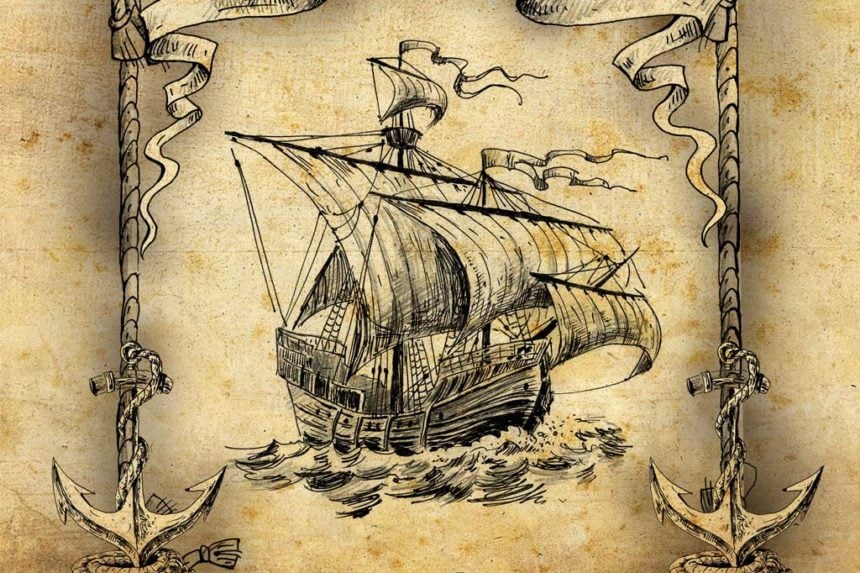Managing editor and logophile Andy Hollandbeck reveals the sometimes surprising roots of common English words and phrases. Remember: Etymology tells us where a word comes from, but not what it means today.
We’re less than a week away from September 19 and one of the best holidays of the year: International Talk Like a Pirate Day! But before you start revving up your “ARRR”s or shivering your timbers, learn about the history of two words often associated with the high-seas adventures of pirates: swashbuckler and buccaneer.
Swashbuckler is a word that came together during the 16th century, and it’s a fairly simple combination of two pre-existing words: A buckler was a small shield one could hold by a handle. Swash was a verb meaning “to strike loudly or violently.” It later came to describe the sound of water splashing against a solid surface.
An overconfident duelist of the time might hit (swash) his shield (buckler) with his sword to goad his challenger on — the 17th-century version of “Come at me, bro.” So, naturally, one who showed such swagger and bravado came to be called … a buckler-swasher!
Well, no. Although we form words like that in English all the time (think dishwasher, copyeditor, and shoemaker), for some reason — possibly the influence of the French language — a person who swashed his bucklers was called a swashbuckler. These days, the word is more indicative of a person’s audacity and bluster than their skill with a sword and shield.
Though they contain similar sounds, buckler doesn’t figure into that other word for pirates, buccaneer. In the Spanish West Indies during the 17th century, French hunters and settlers learned how to smoke and cure meat from the natives using a wooden frame they called a boucan; they became boucaniers. When they were driven from their trade by Spanish authorities, some of them became pirates, and they took the name with them.
Become a Saturday Evening Post member and enjoy unlimited access. Subscribe now




Comments
Thanks for yet another enlightening article here. I never really knew, or thought of the word ‘buccaneer’ other than as a fun ride I went on at Knott’s Berry Farm years ago. Who knew the the smoked steak I had at Monty’s Steak House the other night was descended from ‘boucaniers’?! I was at least partially right in my perception of ‘swashbuckler’ as either a high-end pirate OR one with a lot of guts/nerve (possibly foolish) ready to take on any challenge in them thar high seas. Of course I LOVE 18th and 19th century ‘speak’ very much, and have used it in POST comments online, and at least one (March/April 2013) that appeared in the magazine. I only request thou shalt keep thy word origin features in the future, Andy.